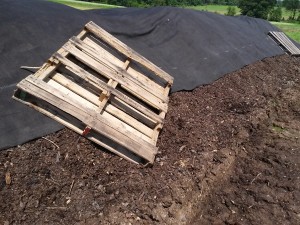Growers who schedule a USDA GAP or Harmonized audit this year should be prepared for an unannounced verification visit later in the growing season.
These unannounced visits have been talked about during our educational sessions, but have mostly not happened due to a lack of auditors in the state. The NJ Department of Agriculture Commodity Inspection and Grading Division now has enough staff to conduct these unannounced visits.
Unannounced visits will take place after the initial scheduled audit is completed. These visits are used to verify that the farm is consistent with the written requirements of the food safety plan and the USDA audit requirements. You cannot schedule these visits and you will not know specifically when the auditor will arrive to perform the audit. The auditor may ask to see documentation during this visit, but will mostly focus on conformance to audit standards and your food safety plan through visual inspection.
 These decision tress will:
These decision tress will:
